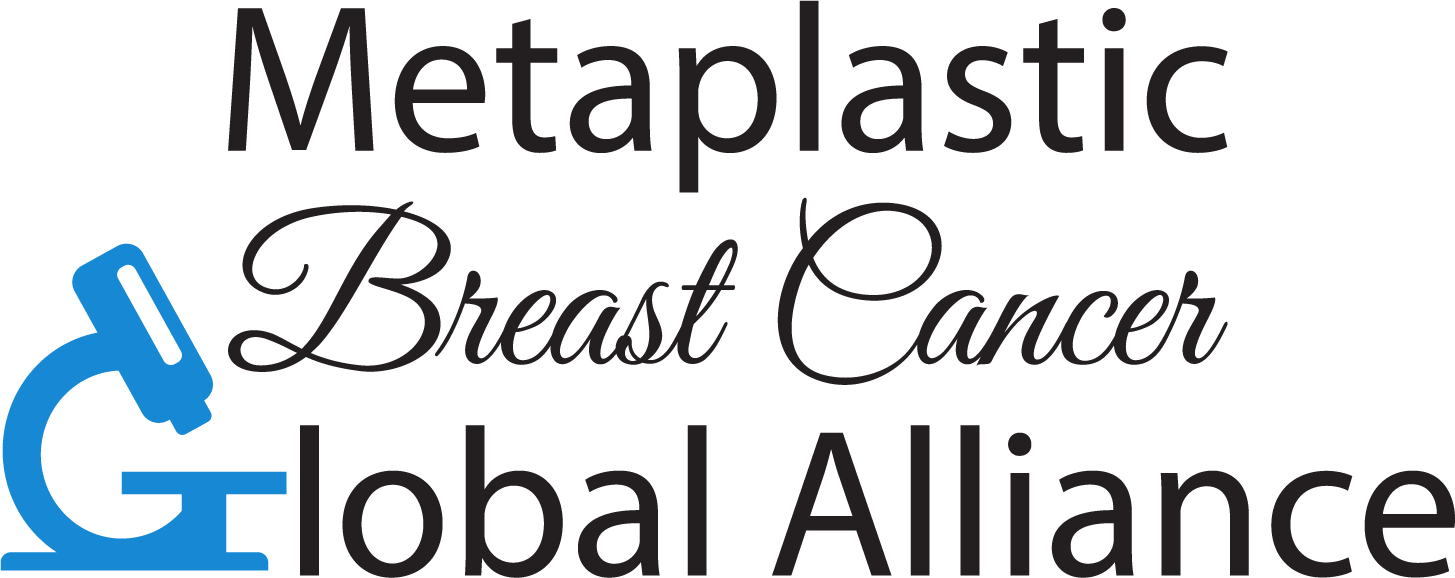Metaplastic Breast Cancer Global Alliance

Metaplastic Breast Cancer (MpBC) or (MBC) was first recognized in 2000 as a distinct subtype of breast cancer. The name metaplastic is derived from the Greek word metaplasia, which means “change in form.” It is generally reported to comprise of 1% or less of all breast cancer cases. Due to its rarity, there have been few studies or clinical trials relating to metaplastic breast cancer.
Breast cancer is both staged, from stages 0 – IV, and graded, from grades 1 – 3. This aggressive type of breast cancer typically presents at a higher stage than the more common breast cancer types such as invasive ductal carcinoma, ductal carcinoma in situ and invasive lobular carcinoma. Fitting to this type of cancer’s rapid growth, the original tumor tends to be larger than other breast cancers. MpBC is less likely to be found in the lymph nodes as it more often spreads through the bloodstream. This accounts for some of the higher initial staging.
Breast cancer tumors are graded according to the cancer cells appearance and the way they grow. Grade 1 cancer cells look a little different than normal cells and grow slowly. Grade 2 cells look more abnormal and grow a little faster. Grade 3 cells, look very abnormal and grow rapidly in a disorganized way. Most metaplastic breast cancers are grade 3 at diagnosis. MpBC begins as one type of cell, typically epithelial cells, which are the cells that line the ducts and lobules, and then morphs into mesenchymal cells. Mesenchymal cells are cells that exhibit the characteristics of stem cells and can differentiate into different types of cells, including bone, muscle and cartilage cells. As a result, MpBC has a number of distinct subtypes, including spindle cell, carcinosarcoma, chondroid and matrix producing, among others.
Metaplastic breast cancer is most often a triple negative breast cancer, written as ER-, PR-, HER2-. This means that it is estrogen receptor negative, progesterone receptor negative and HER2 receptor negative and will not respond to the hormone therapies used for ER+, PR+, or HER2+ cancers. MpBC is often chemotherapy resistant and to this date, there is no specific standard of care. As a result, patients diagnosed are usually treated with chemotherapy protocols used to treat triple negative breast cancers. Regardless, it is well known that these TNBC protocols are often ineffective and are associated with a poor survival rate.
